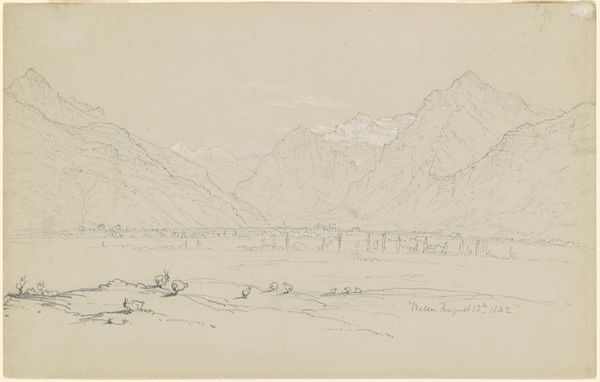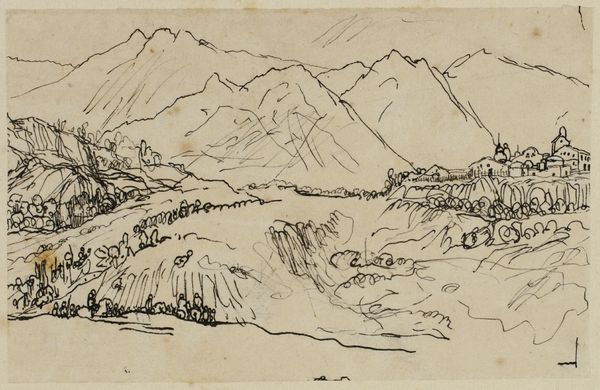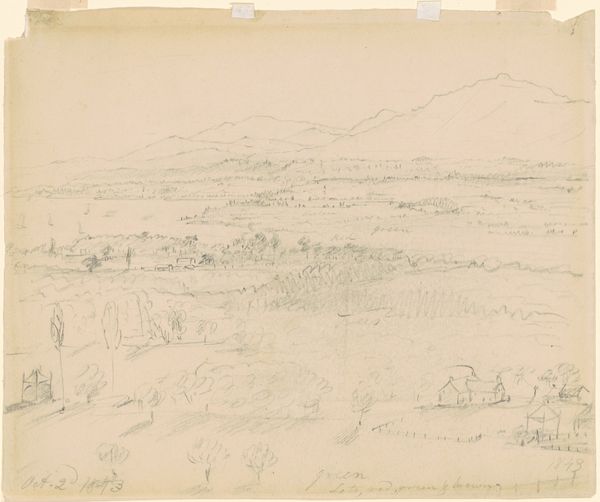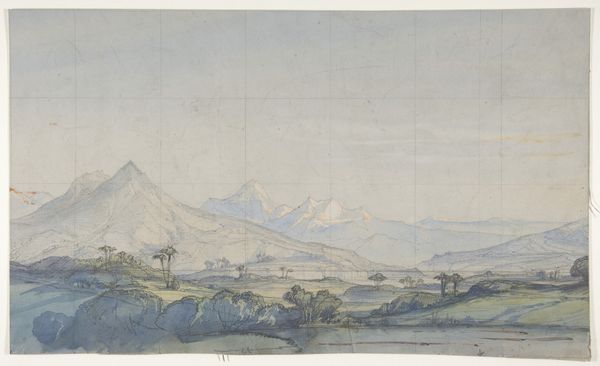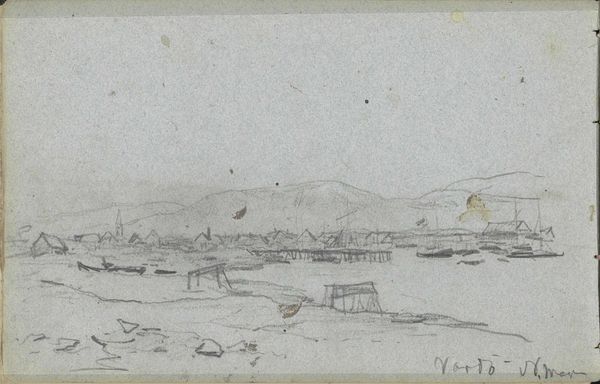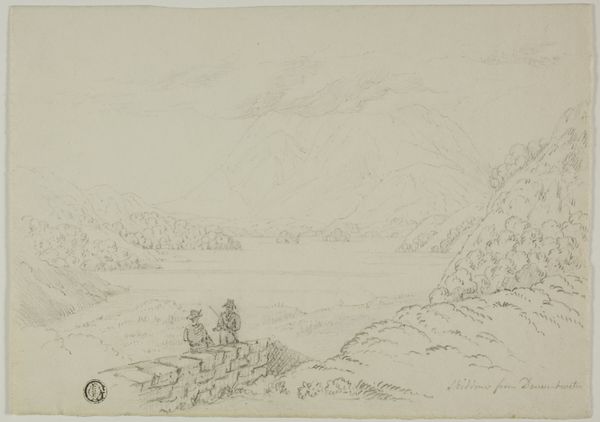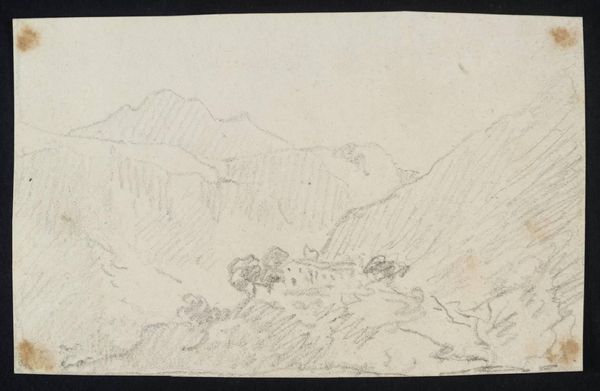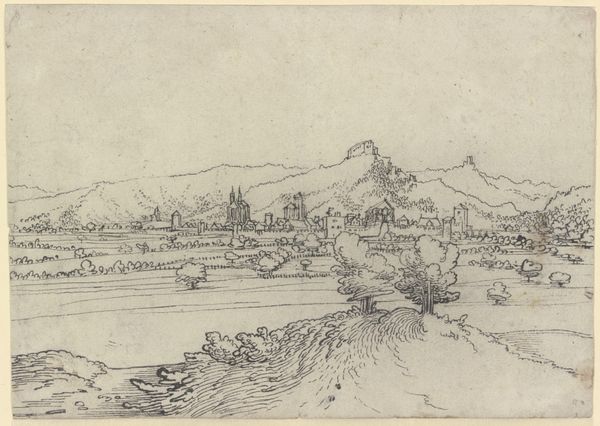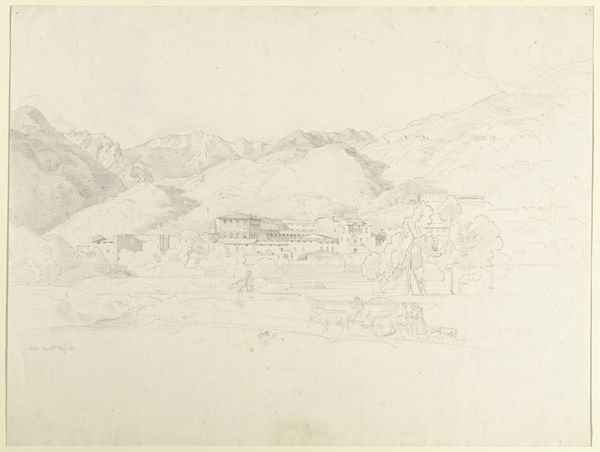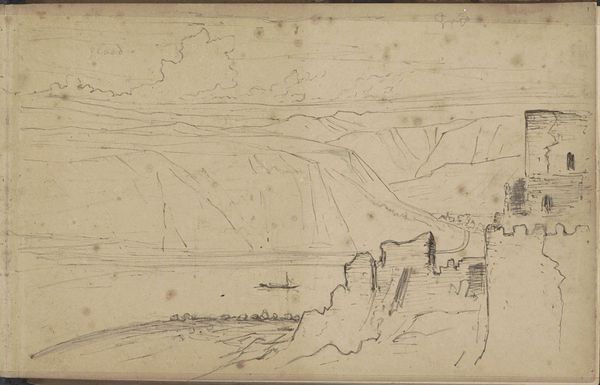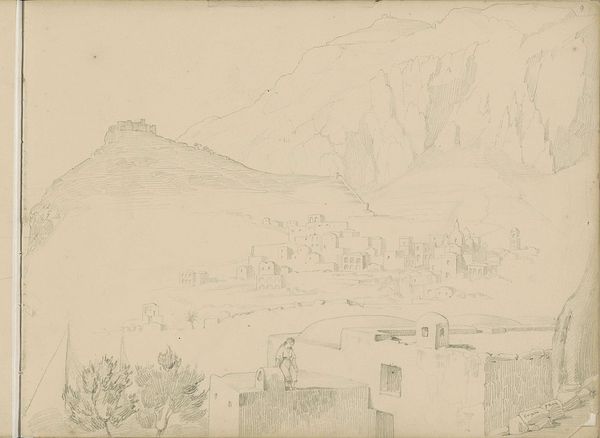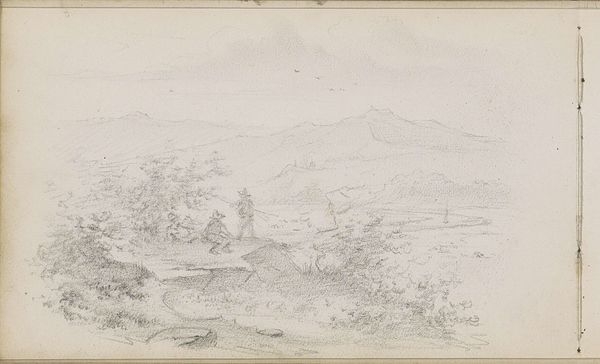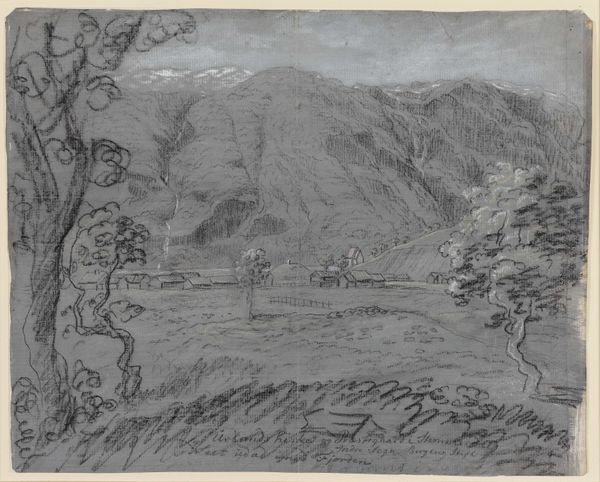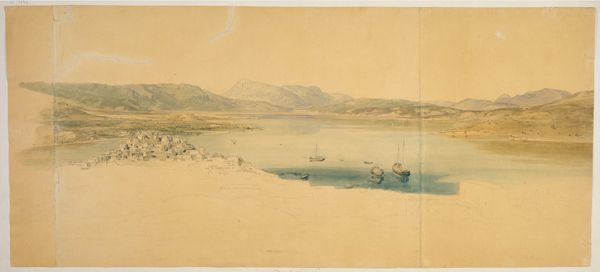
drawing, print, gouache, paper, graphite
#
drawing
#
neoclacissism
# print
#
gouache
#
landscape
#
paper
#
graphite
#
cityscape
Dimensions: 201 × 286 mm
Copyright: Public Domain
William Leighton Leitch made this drawing, Pesto, with graphite on paper. It captures a scene of classical ruins and mountainous landscape, and can tell us a lot about European cultural values in the 19th century. The image creates meaning through its visual codes, referencing ancient architecture. It was made in Britain, a country which had come to see itself as the heir to ancient Greece and Rome. Specific features, such as the imposing mountains in the background, evoke a sense of romantic sublimity. Leitch, in his role as drawing master to Queen Victoria, was part of a powerful institution. His work can be seen as self-consciously conservative, reinforcing traditional artistic values. To understand it better, we can look at the social and institutional contexts in which the artist lived and worked. The meaning of art is contingent on its social and institutional context.
Comments
No comments
Be the first to comment and join the conversation on the ultimate creative platform.
